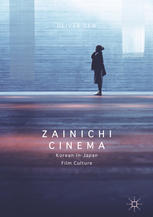

Most ebook files are in PDF format, so you can easily read them using various software such as Foxit Reader or directly on the Google Chrome browser.
Some ebook files are released by publishers in other formats such as .awz, .mobi, .epub, .fb2, etc. You may need to install specific software to read these formats on mobile/PC, such as Calibre.
Please read the tutorial at this link: https://ebookbell.com/faq
We offer FREE conversion to the popular formats you request; however, this may take some time. Therefore, right after payment, please email us, and we will try to provide the service as quickly as possible.
For some exceptional file formats or broken links (if any), please refrain from opening any disputes. Instead, email us first, and we will try to assist within a maximum of 6 hours.
EbookBell Team

5.0
88 reviewsThis book examines how filmmakers, curators, and critics created a category of transnational, Korean-in-Japan (Zainichi) Cinema, focussing on the period from the 1960s onwards. An enormously diverse swathe of films have been claimed for this cinema of the Korean diaspora, ranging across major studio yakuza films and melodramas, news reels created by ethnic associations, first-person video essays, and unlikely hits that crossed over from the indie distribution circuit to have a wide impact across the media landscape. Today, Zainichi-themed works have never had a higher profile, with new works by Matsue Tetsuaki, Sai Yoichi, and Yang Yonghi frequently shown at international festivals. Zainichi Cinema argues that central to this transnational cinema is the tension between films with an authorized claim to “represent”, and ambiguous and borderline works that require an active spectator to claim them as images of the Korean diaspora.